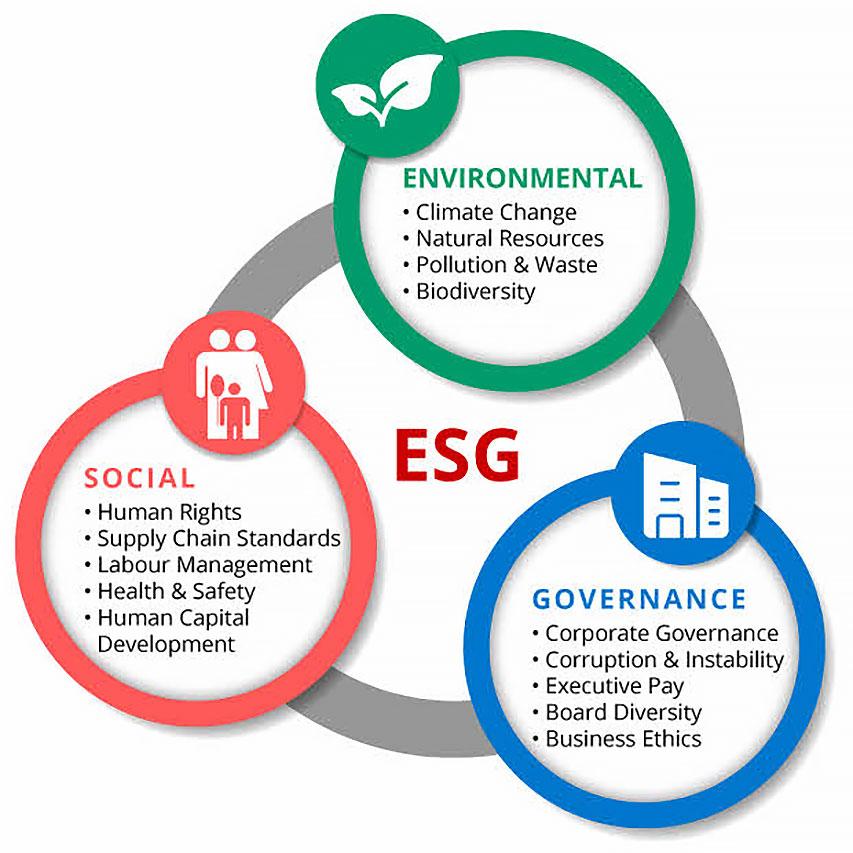What is ESG Investing and why should you care? We break it down
BY DBS, 17 AUG 2021

Here’s why you should consider Environmental, Social, and Governance (ESG) criteria when making your next investment decision
You’ve already started growing your own greens and buying more from socially responsible retailers. What next? Consider ESG investing, which allows you to support companies that are helping bring about a better world, while building a tidy nest egg.
First off, what exactly is ESG investing?
ESG (“Environmental”, “Social” and “Governance”) investing essentially looks at assessing a company and its assets based on both sustainable and financial criteria.
While there is currently no standard definition of what makes up ESG criteria, they generally comprise of the following:

It is also an umbrella term often used interchangeably with the likes of sustainable investing, responsible investing or ethical investing, and covers other forms of investing, such as impact investing.
(So the next time you see these alternative terms, take a deep breath. They’re pretty much referring to the same thing!)
Check out this Understanding ESG investing article by DBS NAV for a more in-depth look at ESG investing.
Why should I care?
Simply put, the world needs us to do this.
We are living among grave environmental and sustainability challenges such as climate change and inequality. It is therefore imperative we live in way that tackles these issues – including holding businesses accountable for their actions and supporting those that seek to create a better world.
“It starts with an appreciation of the immensity and urgency of the issues that we are facing.”
– Mikkel Larsen, Chief Sustainability Officer, DBS
In addition, companies that do good, also do well. What does this mean?
Some may think that ESG investing is an act of doing good at the expense of profitability – untrue. As with every investment, we want to see returns.
Firms with a strong sense of purpose and that embed sustainability in their DNA tend to perform well. For example, index provider MSCI's 2017 research found that companies with higher ESG ratings are associated with higher profitability and lower tail risk!
Environmental, social, and governance violations can go viral quickly, severely hurting the company’s branding and customer trust, and leading to poorer business and financial performance.
“Studies have shown that high-ESG-rated companies tend to have stronger financials, a positive association that reinforces the long-term outperformance potential of companies with good ESG ratings.
– Joseph Poon, Group Head, DBS Private Bank
With sustainability playing an increasingly integral part in socially-conscious investors’ decision-making, investment philosophy and process, ESG funds’ growth trajectory is expected to continue. The rising demand for socially responsible investments is poised to boost valuations, which will, in turn, benefit investors like yourself.
Need more convincing? Check out this article.
Here’s how you can start your ESG investment journey
This excerpt from a Business Times’ article outlining a two-step approach sums it up well:
-
For investors just starting out on investing along ESG lines, Mr (Joseph) Poon (Group Head, DBS Private Bank) noted that ESG is a long-term structural theme. The investment aim is to boost long-term portfolio performance while doing "good".
The bank (DBS) takes a two-step approach:
Investors should know what they own, and assess the ESG rating of their current portfolio and products. This transparency will enable them to decide on what to do next. For example, they can then determine which investment to revisit, or whether to replace lower ESG-rated holdings with higher rated ones to improve the portfolio's overall ESG rating.
When assessing new investment opportunities, investors should also go beyond the usual financial criteria and consider their ESG ratings too. That would give them a more complete picture to make decisions.
This structured approach can help to set an investment framework for every individual, who will have different needs.
Click here for guiding questions to ask yourself when evaluating a company’s ESG rating.
Inspired to find out more? Click here for more information on ESG investing.
For the latest views and insights the impact of sustainable investing on investors and businesses, check out the Business Times’ Futureproof series on ESG, in partnership with DBS Private Bank.